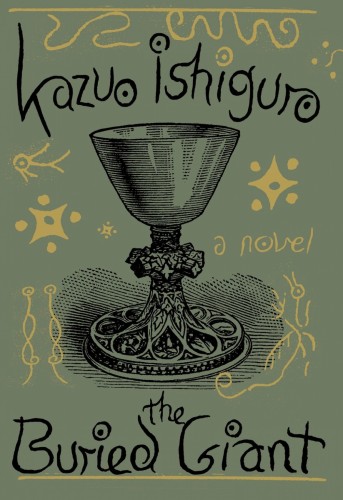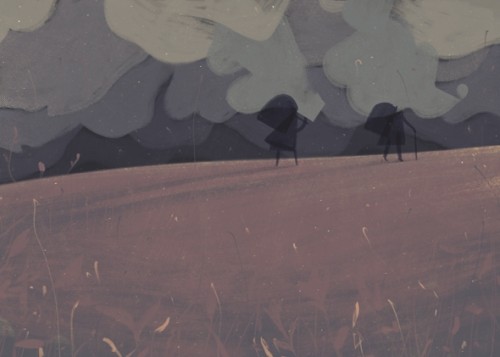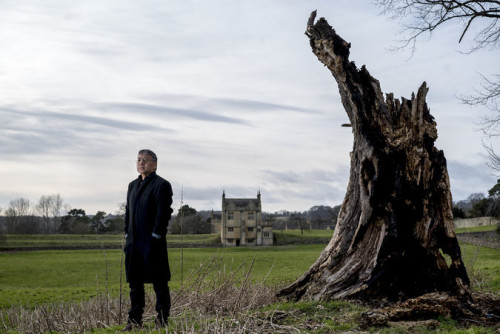 Memory is a finicky thing. It’s subjective to an incredible degree, affected by a multitude of factors including personal bias, innate desires, and decaying human physiology. In short, every human being on earth has a different means of forming memories, as well as a different capability to retain memories. Some are treasured, and some are reviled. In the end, what we remember bubbles to the surface with obscene irregularity – and what we forget is often costlier than what we remember.
Memory is a finicky thing. It’s subjective to an incredible degree, affected by a multitude of factors including personal bias, innate desires, and decaying human physiology. In short, every human being on earth has a different means of forming memories, as well as a different capability to retain memories. Some are treasured, and some are reviled. In the end, what we remember bubbles to the surface with obscene irregularity – and what we forget is often costlier than what we remember.
If that sounds convoluted, don’t read The Buried Giant, the latest work by acclaimed author Kazuo Ishiguro. If it peaks your interest, you’re more likely to find a thought-provoking existential treatise on what memories mean to our collective human experience.
A Lyrical, Romantic Quest
The plot of The Buried Giant isn’t an afterthought, but it’s hardly the point. In his past works, Ishiguro has taken on science-fiction, music, art, and wartime melodrama, each time putting a unique spin on established genre tropes. In this piece, he sets his sights upon British fantasy. Axl and Beatrice are native Britons living in the time shortly after the death of King Arthur. One day, they decide to set out for a neighboring village where Beatrice remembers their son living. They don’t know for sure where it is, nor do they know the reason for their son’s exile. Nevertheless, they feel a strong pull to leave their tiny, earthen-bound village and set off across a pre-medieval landscape fraught with peril.
 Ishiguro sets up the story and carries it out slowly. We aren’t sure of who Axl and Beatrice are, and we don’t know the circumstances of why they are where they are. Rather, he allows the story to unfold at a languid pace, shifting and coursing with each turn of the page. This slow tone might be off-putting to readers who either guess at the book’s conclusion early on or grow weary of Axl’s obsessive care-taking of his “princess”. Ishiguro isn’t exactly heavy-handed when it comes to metaphor, but his work here isn’t subtle in framing his narrative as a quest story. What results is a poetic journey through a landscape rocked by turmoil, violence, and warfare.
Ishiguro sets up the story and carries it out slowly. We aren’t sure of who Axl and Beatrice are, and we don’t know the circumstances of why they are where they are. Rather, he allows the story to unfold at a languid pace, shifting and coursing with each turn of the page. This slow tone might be off-putting to readers who either guess at the book’s conclusion early on or grow weary of Axl’s obsessive care-taking of his “princess”. Ishiguro isn’t exactly heavy-handed when it comes to metaphor, but his work here isn’t subtle in framing his narrative as a quest story. What results is a poetic journey through a landscape rocked by turmoil, violence, and warfare.
Along the way, the intrepid couple encounter a Saxon warrior, an ancient knight on a quest to slay a mythical dragon, and a young orphan who may or may not have been bitten by said dragon. At all times, the characters remark about a pale mist that covers the land and shrouds everyone it touches in a memory-obscuring fog. (Again, the subtleties are not in the metaphors, but in the implications of the metaphors.)
As far as fantasy stories go, this isn’t Game of Thrones. Rather, it bears a more close similarity to the recent novel Ocean at the End of the Lane by Neil Gaiman, though The Buried Giant is more dense and prosaic than Gaiman’s fantastic work. Conversations frequently develop into multi-page endeavors as the characters work around themselves over and over again, trying to make sense of who they are and why they are where they are. By the time conclusions are drawn, there’s not so much a sense of action as a sense of inevitability – the story has led the characters to a realized destiny, one that they cannot avoid no matter how hard they try.
The Poignancy of Loss
 Every character in this story has lost something in the past, and is struggling to remember what it is they have lost. These remembrances lead to varied results – self-actualization is just as likely as tragedy in this world, and often times the two concepts blur together. A knight remembers the true purpose of his quest. A warrior remembers the fallibility of morality and how it will affect his future. Axl and Beatrice struggle with their own memories, which slip in and out of their minds with every page. With each found memory, a character has something taken away from them.
Every character in this story has lost something in the past, and is struggling to remember what it is they have lost. These remembrances lead to varied results – self-actualization is just as likely as tragedy in this world, and often times the two concepts blur together. A knight remembers the true purpose of his quest. A warrior remembers the fallibility of morality and how it will affect his future. Axl and Beatrice struggle with their own memories, which slip in and out of their minds with every page. With each found memory, a character has something taken away from them.
Ishiguro’s works often focus on how humankind deals with loss, and with the inevitable certitude of fate. Rather than wrap his stories with a melodramatic lyricism – ‘woe is me and all I have encountered’ – or an ode to the unbreakable spirit of man – ‘love conquers all’ – Ishiguro instead chooses to show how we accept loss and heartbreak in all of its bittersweet tones. By the time the book winds its way downriver to its conclusion, acceptance is all that remains. It may not be the absolution of free will, but it is a form of free will. Each character in the end must accept their fate, even if they fight against being resigned to it.
Mention is made early on by a detached third-person narrator of the ‘blood-soaked grounds of Britain’, as though we’re being told this story by an elderly man in an English country-side garden. It’s as though Ishiguro is trying to strip away years of civility and broken memories to lay bare the brutal truths that lie beneath the foundations of society. These truths may have been obscured by well-intentioned sorcery and forgetfulness – we’ve purposefully tried to forget our collective natural past – but they need to be uncovered for any of the characters to achieve their unknown goals. The stripping away of lost or imagined memories is painful – even fatal to several characters – but necessary if we are to become that which we know we must.
If any of that sounds boring or too pretentious to bear, I recommend shying away from The Buried Giant. It’s not the longest read at 317 pages, but it can certainly drone on at times. (Axl’s repeated use of “princess” when talking to Beatrice certainly gets old quickly…) If, on the other hand, the idea that our memories do not make us who we are but reveal who we are sounds interesting to you, or if you find that a deconstruction of the King Arthur legend that reveals how we use myth to form civil and social identities sounds fascinating, then you’ll greatly enjoy reading Ishiguro’s latest work. It’s not a masterpiece, but it is certainly a memorable experience.
Images and Photographs via washingtonpost.com, nytimes.com, and slate.com.





